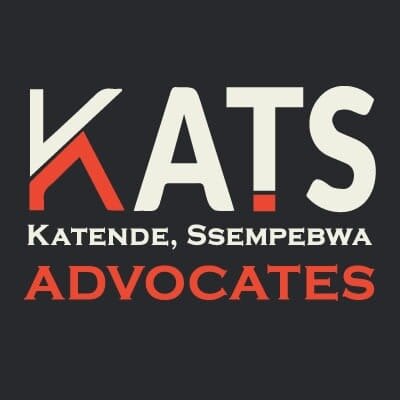Best Employer Lawyers in Uganda
Share your needs with us, get contacted by law firms.
Free. Takes 2 min.
Or refine your search by selecting a city:
List of the best lawyers in Uganda
About Employer Law in Uganda
Employer law in Uganda encompasses a wide range of legal regulations and practices that govern the relationship between employers and employees. It includes aspects such as hiring, workplace conditions, dismissal procedures, compensation, employee benefits, and conflict resolution. This area of law ensures that both employers and employees adhere to their rights and obligations under the Ugandan legal framework, which is primarily outlined in the Employment Act, alongside other relevant legislation like the Labour Unions Act and the Occupational Safety and Health Act.
Why You May Need a Lawyer
There are several situations where seeking legal advice in employer law may become necessary. These include:
- Understanding complex employment contracts and their implications.
- Addressing issues related to unfair dismissal or wrongful termination.
- Ensuring compliance with health and safety regulations at the workplace.
- Handling disputes related to wage and compensation inequities.
- Dealing with harassment or discrimination cases in the workplace.
- Navigating regulatory compliance and disciplinary procedures.
- Facilitating employer-employee negotiations or mediation processes.
- Structuring benefit plans and retirement schemes.
- Guidance on union-related activities and collective bargaining.
- Assisting in legal documentation and proceeding in case of workplace disputes.
Local Laws Overview
The Employment Act is the primary piece of legislation governing employer law in Uganda. Some of its key aspects include:
- Employment Contracts: The Act requires contracts of service to be in writing if employment exceeds four months and specifies terms such as place of work, wages, and job description.
- Minimum Wage: The law mandates that a minimum wage is set, although periodic reviews are conducted to adjust it.
- Work Hours and Overtime: The regular working hours are stipulated, with provisions for overtime pay.
- Workplace Safety: Standards are set under the Occupational Safety and Health Act to ensure safe working environments.
- Leave: Employees are entitled to annual leave, sick leave, and maternity leave as provided by law.
- Discrimination and Harassment: Legal provisions prevent workplace discrimination and set processes for addressing complaints.
- Termination and Redundancy: The Employment Act outlines legitimate grounds and procedures for lawful termination and redundancy.
Frequently Asked Questions
How can I verify an employment contract in Uganda?
You can consult with a labor attorney to review the contract's terms to ensure they comply with Ugandan law and protect your interests.
What steps should I take if I face workplace discrimination?
Document the incidents, report to human resources, and seek legal advice to explore options for filing a formal complaint.
What is the minimum wage in Uganda?
The minimum wage is determined by statutory instruments and may change periodically; consult the latest guidelines or a legal professional.
How do I handle wrongful termination?
Request a written statement of reasons for termination, and consider filing a complaint with the Labour Office or seeking legal counsel for possible recourse.
What are my rights during probation as an employee?
Probation terms should be specified in your contract, typically not exceeding six months; during this period, you have similar rights and obligations as regular employees.
Can my employer change my job description without my consent?
Substantial changes to your job description require mutual agreement and should be documented in an amended contract or addendum.
Are employers required to provide maternity leave?
Yes, female employees are entitled to a minimum of 60 working days of paid maternity leave under the Employment Act.
What is the process for resolving workplace disputes?
Disputes may be resolved internally, through mediation, or by formal complaint to the Industrial Court, depending on the nature of the dispute.
How does redundancy differ from unfair dismissal?
Redundancy occurs due to business cessation or restructuring; it's legal if proper procedures are followed. Unfair dismissal is termination without valid, legal grounds.
What is considered overtime, and how is it compensated?
Overtime is work beyond usual hours and must be paid at a premium rate, typically one and a half times the normal hourly wage.
Additional Resources
For more assistance, consider reaching out to:
- The Ministry of Gender, Labour and Social Development for official guidelines and support.
- The Federation of Uganda Employers for advice and advocacy services.
- The Uganda Law Society for legal representation and directory of qualified labor lawyers.
- The Centre for Arbitration and Dispute Resolution for mediation and arbitration services.
Next Steps
If you require legal assistance, consider taking the following steps:
- Document all relevant details and gather evidence related to your situation.
- Identify and consult a reputable lawyer specialized in employment law in Uganda.
- Prepare any questions or concerns in advance to make the most out of your legal consultation.
- Consider alternative dispute resolution options like mediation, which can be quicker and less adversarial.
- Stay informed about your rights and responsibilities as an employer or employee under Ugandan law.
Lawzana helps you find the best lawyers and law firms in Uganda through a curated and pre-screened list of qualified legal professionals. Our platform offers rankings and detailed profiles of attorneys and law firms, allowing you to compare based on practice areas, including Employer, experience, and client feedback.
Each profile includes a description of the firm's areas of practice, client reviews, team members and partners, year of establishment, spoken languages, office locations, contact information, social media presence, and any published articles or resources. Most firms on our platform speak English and are experienced in both local and international legal matters.
Get a quote from top-rated law firms in Uganda — quickly, securely, and without unnecessary hassle.
Disclaimer:
The information provided on this page is for general informational purposes only and does not constitute legal advice. While we strive to ensure the accuracy and relevance of the content, legal information may change over time, and interpretations of the law can vary. You should always consult with a qualified legal professional for advice specific to your situation.
We disclaim all liability for actions taken or not taken based on the content of this page. If you believe any information is incorrect or outdated, please contact us, and we will review and update it where appropriate.
Browse employer law firms by city in Uganda
Refine your search by selecting a city.















